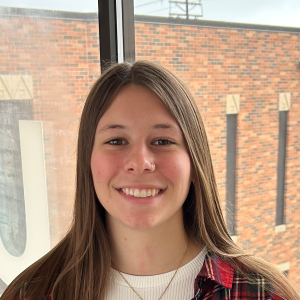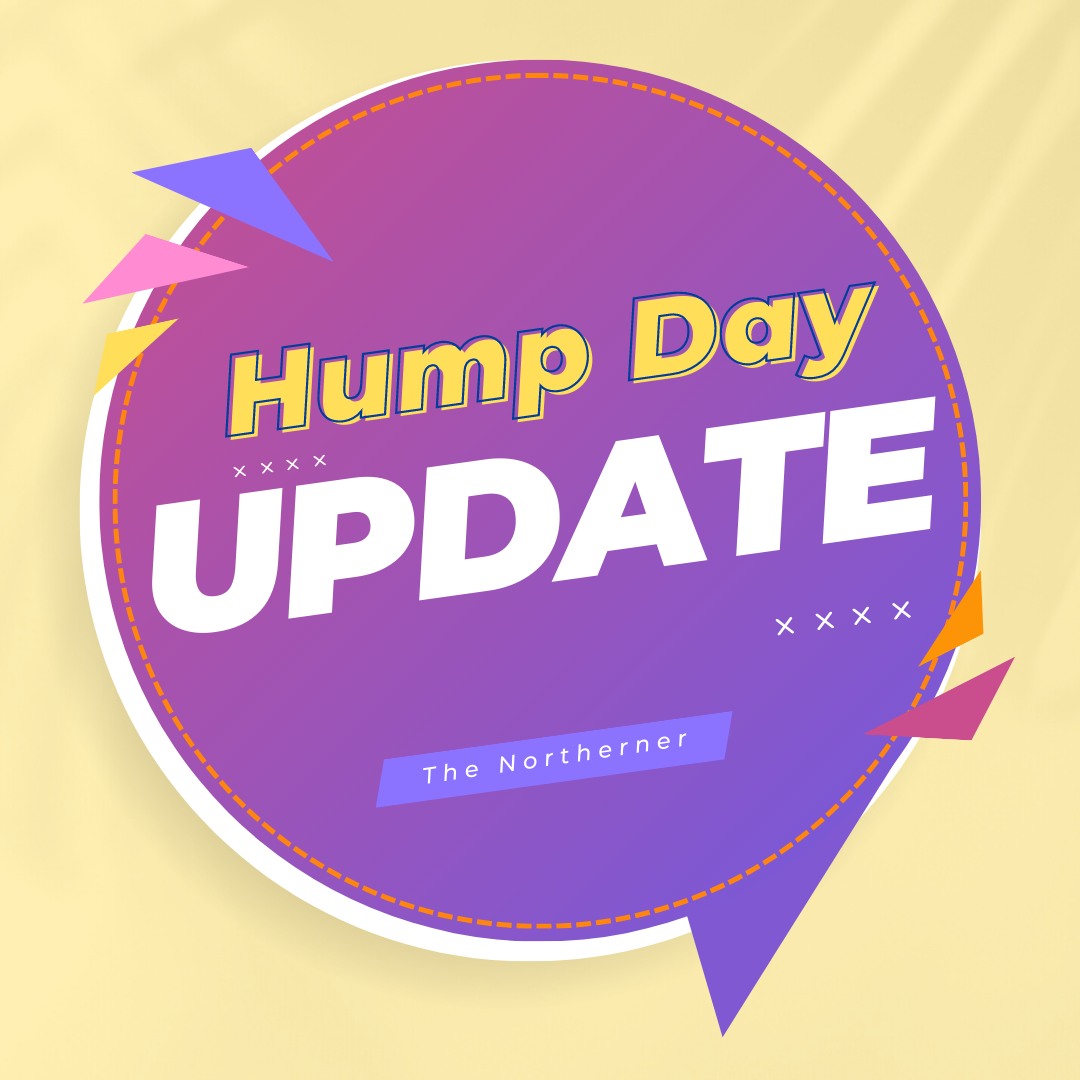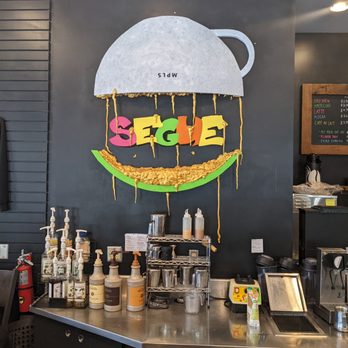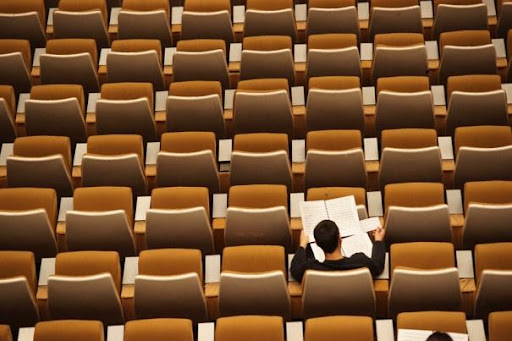The Intricacies of the First Amendment
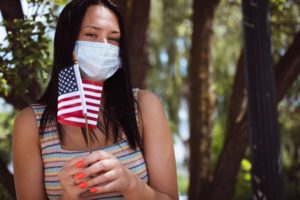
With the new variant of COVID-19 spreading like rapid fire, it’s forced many cities to take action, including Minneapolis and St. Paul. Mayor Jacob Frey issued a mandate for masks to be worn throughout the city and for customers dining in at restaurants to show proof of vaccination or a negative COVID-19 test.
Mayor Frey originally mandated that workers at Minneapolis restaurants and bars would have to follow the guidelines stated by President Joe Biden, to be vaccinated or follow regular testing. However, these guidelines were not upheld by the Supreme Court. The vote was 6-3 with the majority stating that, “Although Congress has indisputably given OSHA the power to regulate occupational dangers, it has not given that agency the power to regulate public health more broadly. Requiring the vaccination of 84 million Americans, selected simply because they work for employers with more than 100 employees, certainly falls in the latter category.” Surprisingly, Biden’s mandate for all health care workers to get the vaccine or be tested regularly was upheld by the Supreme Court 5-4.
The era of COVID-19 has laid havoc to our health, our economy, and our social lives. It has also challenged how our government interprets the First Amendment, as seen in the recent vaccination court case. When the virus first hit, the First Amendment was questioned in all sorts of ways. Continuing reading our story from 2020 to learn more.
Deciphering American Freedoms amidst social unrest and a global pandemic.
By Hannah Grubbs
November 13, 2020
Due to the COVID-19 pandemic, churches were suddenly required to temporarily shut down their buildings. They could not meet for months in person until recently but they are still cut off at 50 percent capacity. On the other hand, Black Lives Matter (BLM) protests and marches concerning George Floyd’s death have been occurring since the end of May. Some Christians believe it is persecution for their church to be shut down, when other movements like BLM are not ordered to do the same. These decisions have come down to the confines of the First Amendments and what it allows.
The First Amendment provides freedom of speech, freedom of religion and freedom to assemble peacefully. Some view this amendment as being able to do and say whatever they want because it is “their right.” However, throughout history, the First Amendment has been stretched and interpreted in various ways. For instance, during World War I, Charles Schenck handed out leaflets to some American soldiers explaining how the war was wrong and that Americans should not support it. Schenck believed he was exercising his right of free speech, but in a Supreme Court Case, it was ruled that his words were treasonous during a time of war. Throughout the years, there are countless cases that have shaped what the First Amendment means today, leaving it no less confusing.
In the case of the BLM protests, protestors are correctly exercising their right of speech and assembly and even, “to petition the government for a redress of grievances.” It has never been a question if the protests have been constitutional according to the First Amendment. If the year 2020 did not have COVID, these protests would have probably looked a little different and the way they were portrayed in the media would also have been different. But the question is not are these protests constitutional by the First Amendment. The question is should they have been allowed to happen according to the restrictions put forth by the Center of Disease Control (CDC) that the government has backed and enforced?
When the government enforced these restrictions on churches, there was an outcry from religious groups across the country. Some were distraught at the thought of no in-person church. Others saw the COVID restrictions as a specifically targeted action and deemed it as persecution, particularly churches out in California. A well known Christian evangelist, John MacArthur, is currently being sued by the California government for opening his church, Grace Community, while the state was still on lock down. On top of this, MacArthur and his staff do not require masks due to his belief COVID is a lie spread by the government, according to The Christian Post. His church’s hearing is to be held sometime in November.
Another Californian, Sean Feucht, has a similar mindset as MacArthur. Feucht is a singer for the popular Christian band, Bethel. He has started a movement called “Let Us Worship.” Let Us Worship has held and is still holding concerts in different major cities in the United States. Feucht believed the ban on churches was persecution, especially in relation to masks prohibiting the singing during corporate worship.
His most recent concert in Washington D.C., held over 15,000 people, most of whom were not wearing a mask and or social distancing, according to WUSA9. Gail Hawkins, a pastor, felt she needed to attend despite her living in New Mexico. “We get to come and sing outside and praise the Lord from the bottom of our hearts. That is what our nation was founded on- liberty, on freedom. We’re here standing ‘peacefully protesting’ by praising God,” said Hawkins in an interview with The Christian Post. Along with Feucht and Hawkins, those in attendance believe the government is persecuting them by restricting their ability to worship.
David Schultz, professor of political science at Hamline disagrees. Schultz does not think that the COVID regulations have persecuted and prohibited the church from worship. “In general, the First Amendment bars interference with free exercise of religion. However, the courts have ruled that so long as there is a neutral secular purpose some aspects of religious activity can be regulated in order to promote compelling governmental interests of promoting public safety, health, and non-discrimination. However, the laws have to be drawn narrowly to minimize religious rights. Preventing a pandemic is a legitimate restriction and so is mask wearing, but outright bans on religious services are not.”
Schultz argues that a world-wide pandemic that has killed and sickened countless people is a justifiable reason to put restrictions on worship gatherings. A complete ban would have gone against the First Amendment; that is why other options were made available. Churches held online services, or met outside, keeping six feet from each other while wearing masks. Similar to the BLM protests, Feucht and other Christians have held anti-COVID restrictions protests and concerts, which have not been shut down.
Schultz also argued that an outright ban on the BLM protest would have been a “drastic action” and would have led to more violence that would not have been necessary. “From a public health perspective, it would have been smarter for the protests not to have taken place and that instead an alternative means to express political views had been used. Maybe requiring masks, limiting the size of the protests, or other measures to regulate was the answer but certainly not an outright ban,” Schultz suggested.
Christians and other religious groups got upset that the protests could happen amidst the pandemic, while churches could not. However, their logic is flawed according to Schultz. Churches were not persecuted because they had other means to worship. There are other groups of Christians who agree with Schultz on the restrictions being constitutional and will follow them.
By comparison, BLM protests are protesting the persecution of their race. BLM’s mission statement is to “…eradicate white supremacy and build local power to intervene in violence inflicted on Black communities by the state and vigilantes. By combating and countering acts of violence, creating space for Black imagination and innovation, and centering Black joy, we are winning immediate improvements in our lives.” The murder of Floyd was the “last straw” in a sense, which led to the BLM protests in 2020. This happened to be occurring during the pandemic but was not directly related to COVID. If protests were completely banned by the COVID restrictions, ‘free speech’ would most likely have been more violent. The protesters would have felt their voices were being quieted more than they already have been. Like Schultz said, another type of demonstration would have been more reasonable during the pandemic. Both free speech and public health are important; they must work in unison.
There is also the argument that COVID spread in significant amounts due to the protests and the enormous amounts of people who attended. In some instances, there was a lack of social distancing and masks, making it the perfect environment for the virus to spread. However, data provided by CDC says differently.
According to the New York Times, Floyd was murdered on May 25, two days later protests began in Minneapolis. These protests were then seen in other major cities throughout the country on the 28. Protests would then continue staying strong through the middle of June.
The CDC tracks this time period as being one of the lowest times for COVID cases. On May 27, there 19,680 cases compared to July 24 with 74,818 cases. Between May 27 and June 15, the case number never went above 20,000. In contrast, mid-June cases started to rise when Governor Waltz started opening businesses, restaurants and churches. From then on, the numbers have not even been nearly as low to what they were during the protests.
In fact, many churches have had to close back down due to outbreaks in their congregations. Bethel’s Rock’s Farmington Campus closed just last week, and the pastor of the Richfield campus recently had the virus. This is unfortunately due to the mindset that some Christians have about viruses. A church in Idaho held an impromptu worship event outside after their state government extended an order for social distancing and mask wearing. The church leadership explicitly told its congregants to not wear masks in defiance to the order. During the event, the six-feet rule was broken, and officers told them they could worship if they maintained that distancing rule. The worshippers did not listen and eventually got arrested.
This church, along with MacArthur’s church, are blatantly disregarding the law because they think they are being targeted above others, namely the BLM protesters. In all reality, the protesters are doing something that is worthy of breaking the six-foot barrier.
The First Amendment has always been tricky. But COVID-19 adds a different level of complications on how to handle things. Massachusetts Governor Charlie Baker and Boston Mayor Marty Walsh had an interview about how to deal with this problem. “As we combat the pandemic, we remain in a real struggle with how to carry out the bedrock principles of democracy with the best medical guidance available to fight an infectious, contagious disease,” said Baker. There are no sure answers as of right now. We are all in this together, taking it one step at a time walking through uncharted territory.
The Rules of COVID-19 are still being challenged at both the state and national level.
